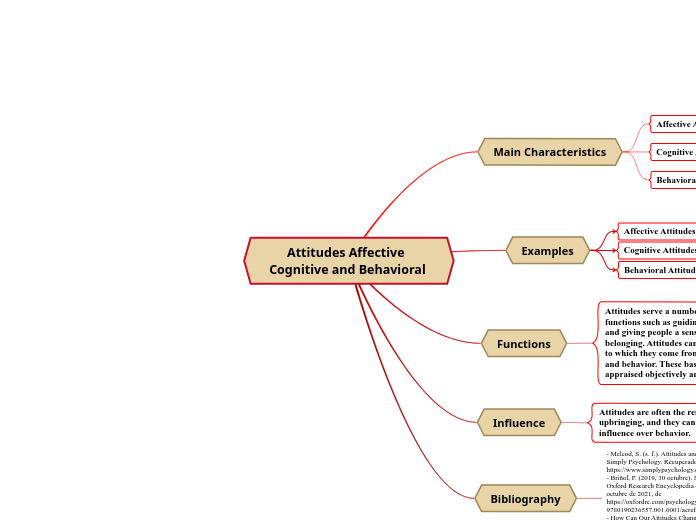Attitudes Affective Cognitive and Behavioral
Main Characteristics
Affective Attitudes
This involves a person’s feelings / emotions about the attitude object.
Cognitive Attitudes
This involves a person’s belief / knowledge about an attitude object.
Behavioral Attitudes
The way the attitude we have influences on how we act or behave.
Examples
Affective Attitudes
“I am scared of rats”.
Cognitive Attitudes
“I believe rats are dangerous and disgusting”.
Behavioral Attitudes
“I will avoid rats and scream if I see one”.
Functions
Attitudes serve a number of important functions such as guiding choices and actions and giving people a sense of identity and belonging. Attitudes can differ in the extent to which they come from affect, cognition, and behavior. These bases of attitudes can be appraised objectively and subjectively.
Influence
Attitudes are often the result of experience or upbringing, and they can have a powerful influence over behavior.
Bibliography
- Mcleod, S. (s. f.). Attitudes and Behavior | Simply Psychology. Simply Psychology. Recuperado 30 de octubre de 2021, de https://www.simplypsychology.org/attitudes.html
- Briñol, P. (2019, 30 octubre). Structure and Function of Attitudes. Oxford Research Encyclopedia of Psychology. Recuperado 30 de octubre de 2021, de https://oxfordre.com/psychology/psychology/view/10.1093/acrefore/9780190236557.001.0001/acrefore-9780190236557-e-320
- How Can Our Attitudes Change and Influence Behaviors? (2020, 3 mayo). Verywell Mind. Recuperado 30 de octubre de 2021, de https://www.verywellmind.com/attitudes-how-they-form-change-shape-behavior-2795897
